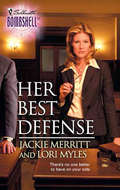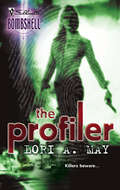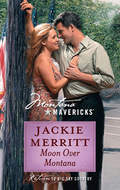Raamatut ei saa failina alla laadida, kuid seda saab lugeda meie rakenduses või veebis.
Loe raamatut: «July Thunder»
The wind kicked up. The fire hungrily sucked it in, feeding the flames with fresh air.
The angry red glow brightened. Like orange lights winking on in the darkness, the flames scattered to trees farther away, jumping long distances. Heading south, heading up the mountainsides.
The wind, shifting almost wildly, blew smoke their way, blinding them, causing Mary to cough as it burned her throat.
Huge tongues of flames leapt upward, more than twice the height of the trees. And on the wind they could hear the distant roar, like that of a hungry beast.
A shoulder brushed Mary’s, and she looked to her side. Elijah Canfield stood there, staring at the fire. “Where’s Sam?” he asked.
“I think he’s still down with the crew building the firebreak. He didn’t come back after he took food down.”
His eyes, intense even in the dull red glow that was lighting the night, fixed on her. “Doesn’t anyone know for sure?”
Mary felt a stirring of impatience, accentuated by her growing anxiety. “That’s the last we heard from him.” She paused, then asked skeptically, “Why? Are you worried about him?”
A January Chill “is an entertaining romantic suspense that stars two wonderful lead characters.”
—Midwest Book Review
July Thunder
Rachel Lee

July Thunder
Contents
Prologue
Chapter 1
Chapter 2
Chapter 3
Chapter 4
Chapter 5
Chapter 6
Chapter 7
Chapter 8
Chapter 9
Chapter 10
Chapter 11
Chapter 12
Chapter 13
Chapter 14
Chapter 15
Chapter 16
Chapter 17
Chapter 18
Chapter 19
Chapter 20
Epilogue
Prologue
Lightning struck the same day Elijah Canfield arrived in Whisper Creek, Colorado. It struck at precisely the same hour, and within a few minutes of Elijah’s arrival. No one took note. Not then.
The lightning struck a forest as dry as tinder. It hadn’t rained in months, and the snowfall of the past winter had been light.
Had anyone been around just beforehand, they would have known it was coming. The charge built in the ground until boulders hummed like angry beehives. Animals scurried away, their coats prickling and trying to stand on end, racing through charged air that felt as if it were full of cobwebs. It was as if the mountain came alive with anger, as if its very spirit rose to the heavens in outrage. The world hummed and buzzed with fury.
No one saw it happen. The bolt came out of a nearly cloudless sky, unexpected, unlikely.
In an instant, with a single thunderous clap, the lightning struck, picking as its target a tall, dead pine. The pine rent with another crack, lost in the rolling explosion that echoed off surrounding mountains, then burst into flame. Thin wisps of black smoke rose from the burning pitch, blown away immediately by a brisk breeze, concealing the evidence that otherwise would have been visible for miles.
But the wind did more than conceal. It lifted and carried tongues of flame with it, scattering them almost merrily among the other trees. Some died before they found sustenance. A few licked happily at dry branches and grew.
But no one was there to see.
Just as no one was there to see when Elijah Canfield pulled his car up to The Little Church in the Woods some forty miles away. Elijah was a minister, and the church was to be his new home. It was a small congregation and a small church, but it was a congregation that thirsted for the message that Elijah brought with him, the same way the flames thirsted for the dry limbs and needles of the pines. Elijah brought thunder and hoped his words would strike as lightning.
And flames began to devour the mountain.
1
Sam Canfield regarded the beautiful day with disfavor, then wondered if that wasn’t just getting to be a bad habit. It had been three years since his wife’s death, and common sense told him he should be getting past his dislike of beautiful sunny days. Especially beautiful sunny days when there was no snow on the ground.
After three years, he told himself, it should no longer seem like a personal affront when the sky wasn’t filled with low, leaden clouds that wept. So maybe he had just developed some bad habits.
Still, he wasn’t happy to see a sky so blue it hurt to look at it or feel the warmth of a summer day, a day the locals would call “hot,” even though they would be lucky to see eighty.
He locked the door of his snug little house behind him, closing it on the memories within that had haunted his nights for a long time. This morning, for some reason, closing that door didn’t feel like a betrayal. At once, the realization filled him with guilt.
Was he healing? Part of him thought it was about time, and part of him wondered how he could even think of letting go.
Sighing, he got into his patrol car and headed for his job as a sheriff’s deputy in Whisper Creek. Another day, another dollar, he told himself. But this morning the words didn’t sound quite so…despairing. This morning they just sounded cynical.
It occurred to him to wonder if he would even like the man he had become, assuming he bothered to look closely, then he dismissed the question. When life dealt you lemons, you made lemonade. He wasn’t at the lemonade stage yet, though. He wondered if he would ever be.
And he wondered why he should even bother.
Morning roll call, such as it was, was quiet as usual. A dozen deputies, just waking up, got ready to go out to their cars and patrol the remote byways of the county and the quiet streets of the town. The kinds of crimes that plagued major cities were rare here. Domestic violence and brawls topped the list of problems, followed by relatively rare robberies and burglaries. That was one of the reasons Sam had moved here from Boulder. A quieter life. A less dangerous job. Because he and Beth had planned to start a family.
The thought darkened his soul, but he was making a decent effort at shaking the mood off when Earl Sanders, the sheriff, stopped him on his way to the car.
“Hey, Sam,” Earl said. “How’s it going?”
“Great,” Sam replied. He wouldn’t admit to anything else. Earl had held his hand through some of the darkest nights of his life, a friend at every turning, and Sam was determined not to lean on him any longer.
“We’re still on for dinner tomorrow night, right? Maggie’s swearing she’ll kidnap you if you don’t show up under your own steam.”
Sam summoned a smile to his stiff face. “I’ll be there.” He couldn’t blame Earl for checking. He’d accepted more than one invitation to dinner with the Sanders family only to beg off at the last minute because he couldn’t bear the thought of being immersed in their happiness for several hours. “I promise.”
“No excuses.”
“Not a one.”
“Good.” Earl’s smile suggested doubt, but he wasn’t going to say so. “I wanted to ask you…. Didn’t you say your dad was a minister?”
Sam wondered which of his drunken binges had caused those words to tumble out of his mouth. He never talked about his family, made a policy of pretending he had none. Which he didn’t, not really. But more than once in the last few years he’d gotten in a mood and drowned his sorrows in beer, and he had probably babbled unwisely.
He didn’t drink like that anymore. A sign of healing, maybe, or a sign of despair. He didn’t know which. Something inside him had begun a painful dying when Beth was killed, and maybe it had finally given up the ghost, leaving him dead inside. Which was fine with him. Feelings weren’t all they were cracked up to be.
“Yeah,” he said reluctantly. “Why?”
Earl shrugged, but the sharpness of his gaze belied his seeming indifference. “There’s a new minister over at The Little Church in the Woods. He arrived in town yesterday. I wondered, because his name is Elijah Canfield.”
Elijah Canfield. Recognition hit Sam like an explosion in his head, and for an instant he couldn’t even see. And he had thought he was dead?
Life poured into him, painful life, with an anger so pure it burned in him like a white flame, with a hurt so deep it filled his gut with molten lead. Holding himself in became a nearly impossible act of will.
He could barely see Earl’s face. Between clenched teeth, he said, “He’s my father.”
Then he turned and walked out of the station, his limbs as stiff as ice.
In his patrol car, he sat for long minutes trying to calm himself. Nothing had changed, he told himself. The old bastard was just closer than he had been before. It didn’t make any difference. Elijah would still treat his son as dead, and Sam would continue to ignore the existence of his father. They might see each other on the street or in a store from time to time, but what would that change?
Walls of ice could be opaque. Elijah had built those walls block by block, and finally, when the anguish surpassed bearing, Sam had sprayed water over them, sealing even the tiniest chink. The anger that burned in him now was dangerous because it might melt that wall.
He couldn’t allow that. By sheer force of will, he tamped it down. Ice. He had to maintain the ice. It was the only protection he had.
Mary McKinney was driving to the store for her week’s groceries, puttering along Main Street, thinking about nothing in particular. She was good at that when she didn’t have something to occupy both her hands and her mind. Often she wasn’t quite sure where she drifted to, but things popped in and out of her head. Safe things. Simple things. Like whether she should drive down to Denver to visit her aunt this weekend.
The cat darted out from between two cars, directly into her path. It was as if time slowed down and her entire universe suddenly focused on that cat. Orange, tiger-striped. Big. Ratty looking. And right behind it there would be a little boy. She could almost see the dark top of his head as he ran after the cat.
She jammed on her brakes, tires squealing. An instant later there was a loud crunch and she was slammed back in her seat, her head banging against the headrest.
The cat paused to look at her, then darted away across the street. The little boy—oh, God, there was no little boy. She started to shake, her hands so tight on the steering wheel that it shook with her.
Deputy Sam Canfield was suddenly beside her, looking in the passenger window. “Mary? Mary, are you okay?”
Still shaking, she turned her head, speaking through stiff, bloodless lips. “The little boy…”
“What little boy?”
“Did I hit him?”
His rugged face changed. At once he straightened and walked around to the front of her car. There were some passersby standing there, and they spoke with Sam, but Mary couldn’t hear what they said. Her mind was spiraling downward into a dark, terrible place, a place she couldn’t let herself go again.
“Mary?” Sam was back, leaning down to her, his face now concerned. “Mary, there’s no little boy. You didn’t hit anything. Nobody saw a little boy. Just a cat.”
“Oh, God…” Tremors shook her so hard that her teeth chattered. No little boy. No little boy. The words whirled around in her head, almost incomprehensible. She’d seen…no, she hadn’t seen. She hadn’t really. She’d just expected to see.
“Mary, are you okay?”
Licking her dry lips, she made herself look at him again. “I’m fine,” she managed to say. “Just shaken.”
“You got rear-ended pretty hard. Can you put the car in neutral? I want to push you over to the curb.”
She nodded and reached for the stick shift. The car had stalled when she jammed on the brakes, and she didn’t try to start it. Sam opened the driver’s door and leaned against the post, pushing the car with deceptive ease to the curb just ahead. Mary managed to steer, even though her hands felt welded to the wheel.
“There,” he said, when the car bumped gently against the curb. “Set the brake and take it easy.”
But her tremors were easing somewhat, and she couldn’t just sit in the car and think. She needed to be active. Immediately. Before the pit swallowed her again. Climbing out, she stood on rubbery knees and looked at the vehicle that had hit her.
It was a pickup truck that had probably been young about the time Elvis had been in the Army. It was driven by an eighteen-year-old boy who was claiming the Subaru had stopped too soon.
Mary recognized him. He’d been one of her students last year in senior English class. He was a good student and pretty much a good kid, she thought. Just careless, the way many of his age group were.
“It wasn’t my fault,” Jim Wysocki said. “Honest it wasn’t, Deputy Canfield. She shouldn’t have stopped there.”
Sam wasn’t looking too forgiving, Mary noticed. That surprised her, and she clung to the surprise, because it kept her from thinking about anything else. Still feeling wobbly, she walked to where they were standing between the vehicles. Cars eased past them, people craning their necks to look.
Oh, God. The pit of memory yawned, opened by the familiarity of the scene. Mary leaned against the side of her car, looking down at her crumpled rear fender without seeing it. No sirens, she told herself. There were no sirens. Nobody was hurt. Nobody.
But nightmare images hovered at the edges of her mind like the fluttering black wings of bats, waiting to pounce. She closed her eyes and bit her lip until it hurt, then tasted blood. “It was my fault,” she heard herself say hoarsely. She didn’t know whether she spoke to the memories or to the present.
“Like hell it was,” Sam snapped.
It was such a shock to hear the mild-mannered Sam Canfield bark that Mary was shocked out of her memories. “Sam?” she said questioningly. She didn’t know him that well; he liked to keep to himself. But she’d come to think of him as a gentle, kind man, albeit withdrawn and sorrowful.
But Sam didn’t seem to hear her. He jabbed his finger at Jim Wysocki. “You’ve had two speeding tickets just this year. You’re hell-bent on getting yourself or somebody else killed.”
Mary’s instinct was to protect Jim, her student, barely more than a child. “Sam, please. I did stop suddenly.”
Sam shook his head, his gray eyes as frigid as the tundra. “If he hadn’t been following too close, he wouldn’t have rammed you. Careless driving, that’s what it was. At a higher speed, he could have killed you.”
His gaze swung back to Jim, who had stopped protesting. The young man’s head drooped. “I’m sorry.”
“Sorry ain’t good enough,” Sam snapped again. “Sorry isn’t going to fix Ms. McKinney’s car. Sorry wouldn’t resurrect her if you killed her.”
Jim shrank even more, and Mary felt compelled to intervene again. “Sam…”
He shook his head at her, silencing her. “This young fool needs to understand that a car is a deadly weapon that has to be handled with care. Maybe he doesn’t care about his own life, but he should care about other people’s.” He turned on Jim again. “How would you feel if you had to attend Ms. McKinney’s funeral in a couple of days because you were being reckless?”
Mary knew how he would feel. Knew it like the beating of her own heart. The pit yawned beneath her feet again, and she could feel herself teetering, ready to fall over the brink.
Struggling to hang on to the here and now, she reached out and gripped Jim’s forearm. “Listen to him, Jim,” she said hoarsely. “Before it’s too late.”
She felt Sam’s curious gaze settle on her, as if he wondered why the change of heart, but she never took her gaze from Jim’s. It was crucial that he hear her, that he listen to her.
Slowly the young man nodded. “I’m sorry, Ms. McKinney. Really. I was following too close. Deputy Canfield’s right. And I’ll pay to have your car fixed. Every dime, I promise.”
Mary searched his face. Satisfied with what she read there, she let go of his arm. “Don’t give him a ticket, Sam. Please. He won’t do anything silly again.”
“I wish I believed that,” Sam said gruffly.
Mary looked at him, knowing she could never in a million years explain why she felt it was so important to protect Jim from the consequences of his own actions. Knowing that she must, believing the boy understood.
“Oh, what the hell,” Sam said after a few moments. “No ticket. But I’ll tell you, boy, I’m gonna have my eye on you. If I see you doing anything the least bit reckless or stupid, I’m pulling you over. I’m gonna be on you like white on rice, you hear?”
Jim nodded. “I hear.”
“All right. Ms. McKinney’s going to get an estimate on her car and give it to you. See that you take care of it.”
“I will, I swear.”
“Get out of here.”
Jim didn’t argue. He hurried to climb into his truck and drove away considerably more slowly than was his wont.
“Thank you,” Mary said to Sam. Her voice sounded distant, even to her own ears.
“You don’t look good,” Sam said. “I’m taking you home. I’ll get Taylor’s to tow your car.”
“I need to go grocery shopping,” she protested, but the words were automatic, almost inaudible over the buzz in her ears.
“Not in that car. Not when you’re shaking like a leaf. Let me take you home. I get off at three. I’ll take you shopping then.”
She nodded, past arguing. The cat. The child. There was no child. But in her heart there would always be a child. Always and forever.
“Come on,” Sam said, his voice suddenly softening. He took her arm and guided her to his cruiser.
That was closer to her nightmare than he would ever know.
2
Sam was concerned about Mary McKinney. When he dropped her off at her home, she was still shaking and pale. Extreme reaction to the shock of the accident? Or something more?
He didn’t know how to ask. There were secrets in those deep green Irish eyes of hers. As a man with secrets of his own, he figured it was better not to pry.
Besides, he didn’t like the way he was noticing her. Damn it, he’d known the woman for years. Why was he suddenly noticing the way the sun struck fire in her red hair, or the way her green eyes seemed to be layered with both darkness and light? Worse, why was he noticing her tidy breasts and lush hips? Or the delicate shape of her ankle?
He wasn’t ready to notice those things about a woman. He didn’t know if he would ever be ready. Or if he would ever want to be.
But he noticed anyway. Noticed the faint scent of her perfume, a gentle hint of lilac. Noticed her delicate, pale hands with their slender fingers and short nails. Wondered if her skin was as soft as it looked.
Wondered what it would feel like to touch her.
Forgive me, Beth.
But Beth wasn’t there anymore to ease his heart with a touch or a smile, and somehow that only made him feel more guilty.
He set his jaw and walked Mary McKinney to her door. “I’ll be back a little after three to pick you up,” he said.
Before she could say anything and he could discover the pain that lay behind her mossy-green eyes, he turned and went back to duty. The boring hours spent cruising the streets and nearby environs of Whisper Creek were a blessed escape from temptation.
He didn’t want to be tempted. He didn’t want to be unfaithful to Beth, gone though she was, and he didn’t want to risk that kind of pain again. Two good reasons to avoid Mary McKinney.
But the world was apparently in no mood to leave him in his icy prison. Summer heat dogged him, making him aware of the smell of the grass and the pines, of the sound of buzzing insects, though at this altitude there weren’t all that many. Memories teased him, memories of lying in the grass beneath the summer sun while clouds drifted overhead painting fantastic pictures in white and gray. The bark of a dog in someone’s backyard reminded him of Buddy, his golden retriever, already old when Sam married Beth, who departed in his sleep one dark night.
He missed Buddy, too, missed the friendship and companionship of his warm, furry body and soft brown eyes. Maybe it was time to get another dog. Maybe that would settle his heart down again.
A dog he could risk. A woman, never.
But God was not done with him, either. She reached out her hand and turned his day upside down.
There was a battered old car pulled over on the county road about a mile out of town, sitting forlornly on the grassy shoulder, just inches from a drainage ditch. Behind it was a large orange rental trailer, one tire flattened.
The sun was playing tricks, and Sam could barely make out that there was a figure behind the wheel. Hurt? Man or woman? He couldn’t see anything except the silhouette of a head.
The driver probably had everything he owned in that trailer and didn’t want to abandon it beside the road, not even long enough to drive to town for help. Sam keyed his radio and notified dispatch of the problem. They promised to call for a tow.
Leaving his roof lights flashing, Sam climbed out of his car and went to tell the motorist help was coming. It was not until he stood right beside the open driver’s window of the car that he realized who he was looking at.
A fist seemed to slam him in the solar plexus as he looked at a man he hadn’t seen in nearly fifteen years.
“You!” he said.
Icy-blue eyes met his, set in an austere, deeply lined face that was surrounded by the snow-white mane of long hair and a beard. The man looked like a prophet of old, and his gaze held the same fanatical zeal. He pushed open the door of his car and climbed out, standing tall and straight.
But Elijah Canfield didn’t say a word. He hadn’t spoken to his son but once in all these years, and that once had been to strike the deepest wound he had ever given Sam.
Sam couldn’t speak, either.
The two men stood staring at each other, strangers with an old, anguished history between them. Sam felt hatred simmering on the hot pavement between them, buzzing in his head like angry bees. But it wasn’t his hate; despite everything, he had never hated his father. But his father had hated him. Still hated him.
In response, Sam felt despair rising in him, a choking, agonizing hopelessness. For a few seconds he thought he was going to lose the battle. Then, in an instant, all the painfully constructed defense mechanisms slammed into place. Distancing him. Turning this old man into just another stranded motorist.
“There’s a tow truck on the way,” Sam said.
Elijah nodded once, briefly, a bare acknowledgment. But still he didn’t speak.
Of course not, Sam thought, looking past his father to the mountains beyond. Elijah hadn’t spoken to him in so many years other than to condemn him that he probably couldn’t even manage a civil word anymore. Simple human courtesies such as “how are you?” and “thank you” could no longer fill the silence between them. It was too late.
It had been too late for a long, long time. Sam bowed his head for a moment, battering down a surge of feeling, then looked at Elijah again with the chilly gaze of a stranger. “I’ll wait until it gets here.”
Then he turned and went back to his car, slipping inside behind the wheel, grateful that his suddenly unsteady legs didn’t need to support him any longer.
Sometimes, he said silently to God, you have a nasty sense of humor.
And for a few moments, he almost thought the hills laughed back at him.
“Mary?”
Mary McKinney held the phone closer to her ear. “Yes?”
“Fred Taylor, Taylor’s Auto Body.”
“Oh, hi, Fred. What’s the bad news?” But she didn’t care. At least this bad news would distract her from her other unhappy thoughts. Funny how the past could sometimes be more vivid than the present. She’d spent all day since the accident trying to put it back where it belonged.
“Are you sure you don’t want me to call your insurance?” Fred said hesitantly.
“That bad?”
“The bumper has to be replaced, and the tailgate is really bent. I don’t think we can straighten it, so we’ll probably have to get a whole new door assembly. Taillight assemblies, paint…well, you’re not gonna like it. But the car’s almost new. You ought to have it fixed the way it was or it’s worthless. The bank wouldn’t like that.”
“How much?” she asked.
He quoted a price that caused her to straighten abruptly.
“That much?” she said, appalled. No way was Jim going to be able to pay for that, not after working at the mine for little more than a month. But neither could she afford it herself. A schoolteacher’s salary didn’t stretch that far.
“Let me call your insurance,” Fred said. “They’ll work it out with the other insurer and it won’t cost you a dime.”
She was tempted, sorely tempted. But it might cost Jim Wysocki his insurance, and without insurance, he wouldn’t be able to drive, even to get to work. Biting her lip, she fought down a sense of panic. What was she going to do without a car? “Is it drivable?”
“Not now.”
“How long would it take to get it drivable?”
“At a minimum, five days. I have to order parts, and there’s a lot of work to do just to get that far, never mind the paint.”
Well, of course, she thought miserably. It was only what she deserved. “Let me get back to you, Fred, okay?”
After she hung up the phone, she sat staring out the window. Across the street, someone was moving into the small house, a man with incredible white hair. A couple of people were helping him. It crossed her mind that she ought to wander over and offer to help, too, but she felt too stunned. Too…depressed.
Jim wouldn’t be able to pay for the repairs. She wouldn’t have a car to drive, which meant she wouldn’t be able to go visit her aunt this weekend. That troubled her, because Nessa was seriously ill, undergoing chemotherapy for cancer. But it was no more than she deserved, she reminded herself. No reason her life should be easy when she had destroyed someone else’s.
With a heavy sigh and a heavier heart, she picked up the phone and called Jim Wysocki. He was just getting ready to go on his shift at the mine.
“Oh, jeez, Ms. McKinney,” he said when she told him the bad news. “Oh, jeez. I can’t pay for the whole thing at once. Half. I could do half. And maybe pay the rest in installments over the next couple of months?”
Paying half would wipe out her savings. But apparently it would wipe out Jim’s, too. Her shoulders sagged. She could have insisted on going to the insurance company, but she couldn’t bring herself to do that. She would manage somehow. She had to.
“All right,” she said. “Take the money over to Taylor’s. You can pay me the rest when you’re able. And tell Fred Taylor to give me a call after you stop in, will you?”
“Sure, Ms. McKinney. Thank you! I mean…”
But she didn’t want to hear his gratitude. As quickly and gently as she could, she ended the conversation. He was a good kid. But like most eighteen-year-olds, he still had some growing up to do.
And she had to stop spending so much of her own money on classroom materials. Like all too many teachers, she was always finding things that she thought would stimulate interest in her students, things the school system didn’t provide. And of course there were always the students from poorer families who needed the most basic supplies, from pens to notebooks. She never regretted those purchases, but she did need to be more careful about them, if her savings could be wiped out by a single car accident.
Forcing herself to shake off the mood that had been plaguing her since the accident, she went to freshen up a little. Sam would arrive to get her soon. And there was the neighbor across the street. She needed to at least welcome him.
The past needed to return to the dungeon where it belonged.
Which of course it didn’t want to. But after all these years, Mary had some experience of twisting her mind away from it by playing tricks with herself. She rewrote her shopping list, telling herself she needed to forgo a few extravagances she had planned. Crossing these things off the list simply wouldn’t do.
And finally she went across the street to welcome her new neighbor, sure that a few minutes of conversation until Sam arrived would be just the distraction she needed.
He was a beautiful man, she thought as she approached him. Tall, lean, with the thickest, whitest hair she had ever seen, and piercing eyes as blue as ice. His very presence seemed to command, and something about him struck her as familiar.
“Hi,” she said brightly. “I’m Mary McKinney, your neighbor across the street.”
He smiled. “Reverend Elijah Canfield,” he said in a deep voice that hinted at thunder. “I’m the new pastor at The Little Church in the Woods.”
“Oh, it’s a lovely little church,” Mary said warmly.
“You’ll join us sometime for worship?”
“I’ll think about it,” Mary replied, though she had no intention of that. She belonged to another church with which she was quite content, thank you very much. “Canfield? I know a deputy named Sam Canfield.” It was a casual remark, something to mention to a stranger when she didn’t know what else to say. She didn’t expect the answer she got.
“I know him,” said Reverend Canfield.
“Are you related?” The thought surprised her. While she didn’t know Sam all that well, she suddenly realized that she’d been under the impression he didn’t have any family at all.
“I know him,” Elijah repeated.
“Oh.” Mary felt uncomfortable suddenly, as if she’d trod somewhere she shouldn’t have. A strange feeling for a first, casual encounter with a stranger. “Well, I hope you enjoy your time in Whisper Creek, Reverend. It’s a lovely, friendly little town. And if there’s anything you need, don’t hesitate to let me know. I’m always good for a cup of sugar.”
He laughed, and the uneasiness was dispelled as if the sun had come out from behind a cloud.
Tasuta katkend on lõppenud.








